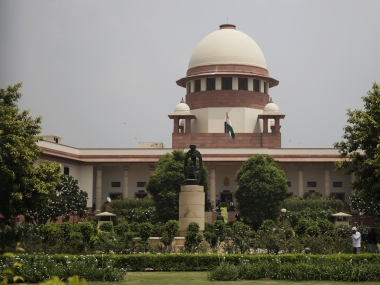A Supreme Court bench led by Chief Justice of India Ranjan Gogoi on Thursday dismissed the petition against the deportation of seven Rohingya Muslims to Myanmar as it refused to interfere in central government’s decision. A plea, filed in the Supreme Court on Wednesday, sought urgent hearing seeking restraint on the Centre’s move to deport seven Rohingya Muslims, who were lodged in the Silchar Detention centre in Assam, back to Myanmar. “They were found to be illegal immigrants and their country of origin Myanmar has recognised them as Myanmar citizens”, CJI Gogoi said. According to reports, the seven will be deported on Thursday from Moreh, a town located in Manipur near the India-Myanmar border. Meanwhile, the Centre told the Supreme Court that Myanmar has accepted the seven people as their citizens and has agreed to take them back. ASG Tushar Mehta tendered an affidavit and said in court that the Embassy of Myanmar was ready to give Certificate of Identity (COI) to the people. However, advocate Prashant Bhushan argued that they are not illegal migrants and that UN officials should be allowed to talk to them. The seven Rohingya Muslims, who will now be deported, have been identified as:
Mohammad Inus, Mohammad Sabir Ahmed, Mohammad Jamal, Salam, Mohammad Muknul Khan, Mohammad Rohimuddin and Mohammad Jamal Hussain. Six of them belong to the Keito village in the Faida district of Myanmar whereas Sabir Ahmed belongs to the Burma village, according to sources. They have been in the country since 2012 and have also served jail terms for illegal entry.
[caption id=“attachment_5315231” align=“alignnone” width=“500”] Names of the seven Rohingya Muslims and their Myanmar address. Image courtesy: Tilak Purkayastha/101 reporters[/caption] Earlier, the Supreme Court had appointed area sub-divisional magistrates (SDMs) as nodal officers who could be approached by the Rohingya Muslims immigrants living at Kalindi Kunj in Delhi and Mewat in Haryana with grievances relating to health care, water, sanitation and education. The Rohingya Muslims, who took refuge in India after violence in the Western Rakhine State of Myanmar, are settled in Jammu, Hyderabad, Haryana, Uttar Pradesh, Delhi-NCR and Rajasthan.
However, this move of the government — which considers Rohingya Muslims illegal immigrants and a threat to national security — has drawn criticism from the United Nations, which said their forcible return could mean a violation of international law. Even though, Myanmar’s army has denied nearly all wrongdoing, insisting that its campaign against them campaign was justified to root out the insurgents. “Given the ethnic identity of the men, this is a flagrant denial of their right to protection and could amount to refoulement,” UN Special Rapporteur on racism, Tendayi Achiume, said. More than 700,000 ethnic Rohingya fled an offensive by Myanmar troops launched nearly a year ago in reprisal for attacks on border posts by Rohingya rebels who took up arms against the ill-treatment of the stateless minority. The United Nations has termed the repression “ethnic cleansing” and “genocide”. Myanmar’s army has denied nearly all wrongdoing, insisting its campaign was justified to root out Rohingya insurgents. The UN expert said she was “appalled” at the amount of time the seven men from Kyauk Daw township in central Rakhine state had been detained.


)

)
)
)
)
)
)
)
)



